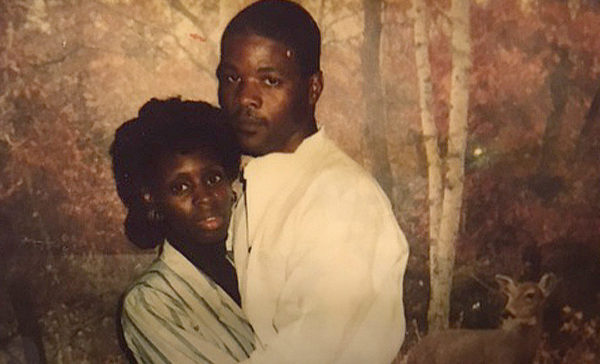DNA Testing Conducted Four Years After Arkansas Black Man Was Executed Finds Genetic Material Belonging to Someone Else
Four years after the state of Arkansas executed Ledell Lee for the 1993 murder of Debra Reese, new DNA testing has revealed genetic material at the scene of the crime belongs to someone other than Lee.
In January 2020, the Innocence Project and ACLU requested new DNA testing in Lee’s case. The city of Jacksonville approved new tests on fingerprints and DNA evidence after the two groups had sued, reported KATV.
Ledell Lee (Innocence Project)
They recently “released summaries of the testing of evidence.” After a review of the data, attorneys said that none of the physical evidence linked Lee to the murder and there were “serious flaws in the evidence to convict Lee.” Arkansas executed Lee and four other inmates in 2017.
The Innocence Project and the ACLU reported that the testing uncovered DNA material not from Lee, but from an unidentified male, on the wooden club used to murder Reese as well as a shirt stained with blood that enveloped it. The tests determined that Lee’s DNA was not present on either piece of evidence.
Additionally, “five of the six hairs tested for mitochondrial DNA excluded Lee as the source. Lee could not be ‘excluded as a potential source’ in one of the hairs,” according to The Innocence Project and ACLU.
“Mitochondrial DNA testing analyzes DNA shared by all individuals in a common maternal line, including distant relatives; it can be used to exclude known individuals as the source, but cannot be the basis for absolute identification or individualization,” said the ALCU and Innocence Project in a press release.
There were no possible matches discovered in the national DNA database, reported THV11.
Local attorney Furonda Brasfield closely observed the case and opposed Lee’s execution for an absence of conclusive evidence.
“I immediately thought this is something we needed to determine and establish before we executed back in 2017,” Brasfield told THV11.
“Before you execute someone make sure you examine all of the evidence carefully, especially DNA evidence because we know now that the DNA evidence can be compelling and definitive to say one way or the other,” she said.
The Innocence Project and ACLU also said that five fingerprints that were found at the crime scene were run in a national database but the person with those prints is still unknown, according to KATV.
In a statement from Nina Morrison, senior litigation counsel at the Innocence Project, she said, “While the results obtained twenty-nine years after the evidence was collected proved to be incomplete and partial, it is notable that there are now new DNA profiles that were not available during the trial or post-conviction proceedings in Mr. Lee’s case.”
Morrison said the groups anticipate that in the future the databases will provide more valuable information in due course.
Arkansas Gov. Asa Hutchinson, who set the date for Lee’s execution, was less than remorseful when reflecting on news about the findings.
“Whenever you make tough decisions, whenever you have to carry out the decision of a jury, you realize that it’s been reviewed by the supreme court at every level,” Hutchinson said at a news briefing on Tuesday. “They affirmed the convictions and it’s my duty to carry out the law. The evidence obviously that’s been uncovered is inconclusive and the fact is that the jury found him guilty based upon the information that they had.”

